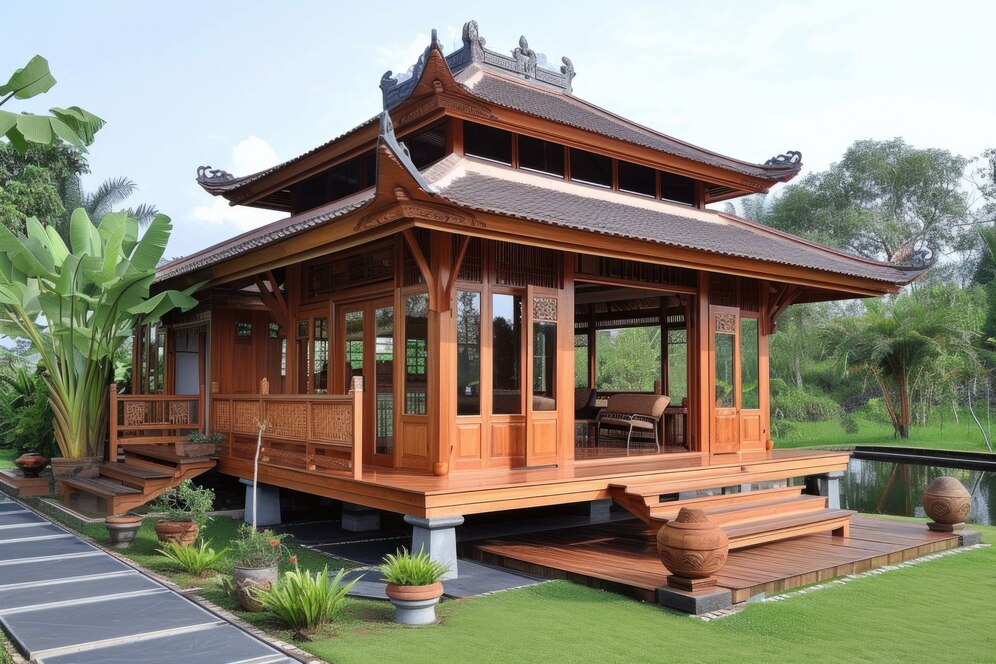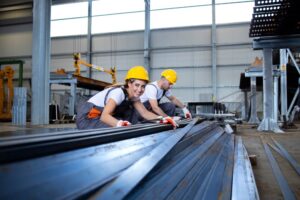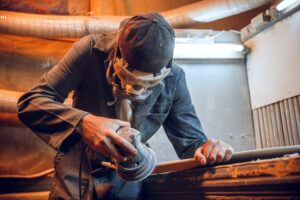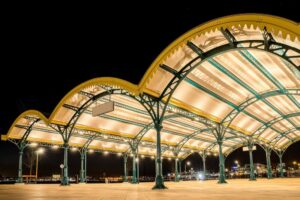Understanding Kerala Style Roofing
“Kerala Style Roofing” refers to a kind of roof that is common in Kerala and other Indian states. Its roof is protected from the elements by an overlapping system of flat or gently curved clay tiles. The clay tiles used for this kind of roof are typically made to resist Kerala’s tropical climate, which is marked by intense monsoon rains and high humidity. Kerala Style Roofingis a common roofing option for residential and commercial structures in Kerala and other parts of India because of its reputation for longevity, water resistance, and thermal insulation. Kerala Style roofing is a long-standing, aesthetically pleasing, and traditional clay tile roofing system that is well-liked in coastal areas.
This blog will discuss the unique qualities of Kerala Style roofing, as well as its elements, materials, and advantages over more conventional roofing designs. Kerala Style Roofing has both visual appeal and functional benefits, making it a great choice for both new construction and renovation projects.
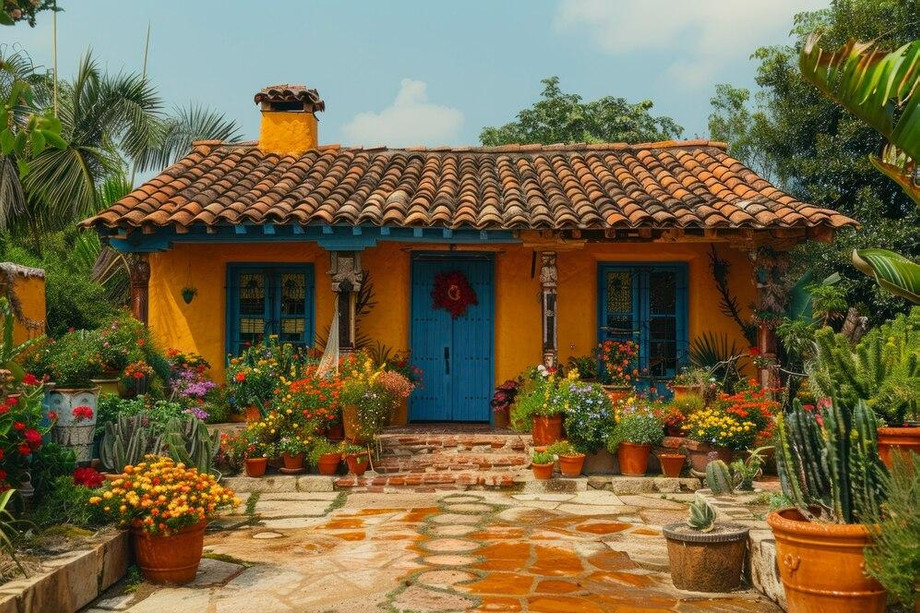
Components of Kerala Style Roofing
The Kerala Style Roofingsystem is an architectural masterpiece, combining artistry with functionality. Here are some of the key components:
1. Sloping Roof Design
The steeply slanted roofs are the most noticeable aspect of Kerala Style Roofing. Carefully measured slope angles prevent leaks and water buildup by facilitating easy water runoff. Over generations, this design has been refined to accommodate Kerala’s copious rainfall.
2. Terracotta Roof Tiles
Terracotta roof tiles are used in traditional Keralan homes. To form a sturdy, weather-resistant surface, these handmade clay tiles are baked and then stacked in layers. Because of their inherent ability to insulate, terracotta tiles are perfect for Kerala style roofing. They also give a home a cozy appearance and help keep dwellings cool during hot weather.
3. Wooden Structure
Premium hardwoods like teak or rosewood are commonly used to construct the supporting framework of Kerala Style Roofing. These materials were selected because they are strong and resistant to inclement weather. The timber framework is frequently beautifully carved, which enhances the roof’s visual appeal.
4. Extended Eaves
The eaves that extend beyond the house’s main framework are a significant feature of Kerala Style Roofing. These overhangs keep the surrounding area dry and shield the walls from direct downpour. They also offer shade, which lowers the quantity of heat that enters the house on hot days.
5. Gables and Decorative Elements
Decorative wooden components are frequently used to embellish the gables on either side of the roof. These could be elaborate carvings or decorative items that highlight the skill of regional craftspeople. In addition to its aesthetic value, the gables give the roof more structural stability and ventilation.
Materials Used in Kerala Style Roofing
Kerala Style Roofing uses carefully chosen materials that both complement the local climate and preserve its traditional look. Among the materials that are most frequently utilized are:
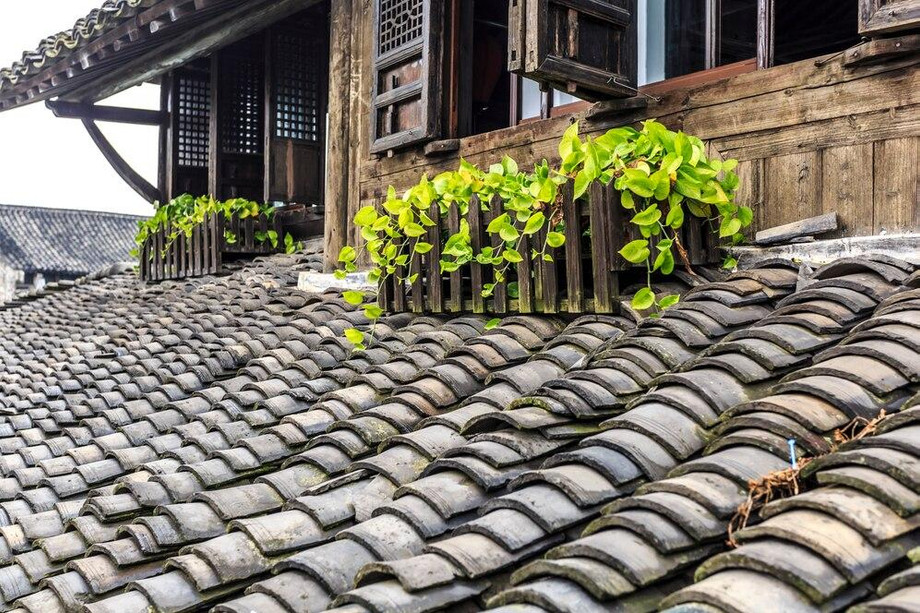
1. Terracotta Clay Tiles:
These classic clay tiles are quite practical in addition to being exquisite. When properly cared for, their inherent insulating qualities make them perfect for maintaining a cool home. They also boast exceptional durability.
2. Wood (Teak, Rosewood, or Mahogany):
Kerala Style Roofing uses a lot of wood for its framework and ornamental features. Superior hardwoods give the construction a sophisticated, earthy tone and guarantee endurance.
3. Copper Sheets:
In some traditional homes, copper sheets are used in combination with clay tiles, particularly at the ridge and along the edges of the roof, to prevent water leakage. Copper sheets add a rich, lustrous touch to the roof and age beautifully over time.
Advantages of Kerala Style Roofing
Kerala Style Roofing is not only about preserving a time-honored tradition; it also offers numerous practical benefits:
- Durability: This kind of roof is made of sturdy, long-lasting terracotta tiles that can resist severe winds and rain.
- Water Resistance: The building is shielded against water damage and water entry by an impermeable barrier created by the overlapping pattern of the tiles.
- Thermal Insulation: Clay bricks are a great way to keep a building warm in the winter and cool in the summer, which means that less heating and cooling is required.
- Natural Cooling: The capacity of Kerala Style Roofing to naturally cool homes is one of its most notable qualities. For hot, muggy areas like Kerala’s, the combination of the eaves and terracotta tiles helps control internal temperatures.
- Aesthetics: The building’s worth and appeal are increased by the Kerala style roofing’s tiled roofs, which give it a charming, traditional appearance.
- Eco-Friendly: Clay roof tiles are a sustainable roofing option because they are composed of natural resources and have minimal environmental impact. Kerala style tile roofs are a popular roofing option in Kerala and other parts of India because they provide protection, durability, energy efficiency, and aesthetic appeal.
Conclusion:
Kerala-style More than just a roofing type, roofing represents the state’s rich architectural history and the value of using traditional building methods. Its blend of durability, aesthetic appeal, and practicality has made it a popular option among Keralan and other homes.
Adopting Kerala Style Roofing is an investment in a roofing solution that endures weather and time, as well as a nod to centuries of tradition. Kerala Style Roofingis a great option if you’re renovating an old house or building a new one since it strikes the ideal mix between style and functionality. You can get best authentic Kerala style roofing services by Danish Fabrication Works. Traditional designs with modern durability. Enhance your home with us!!

